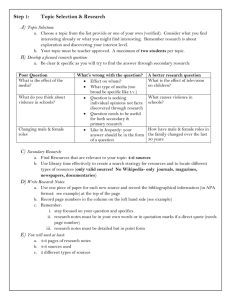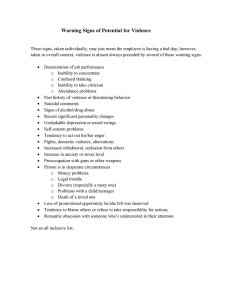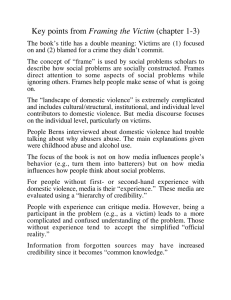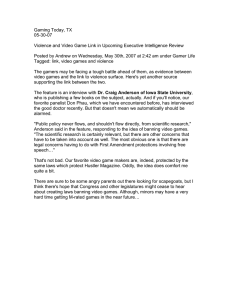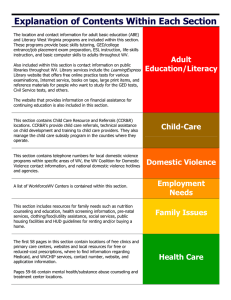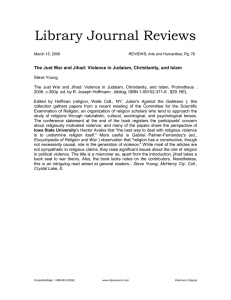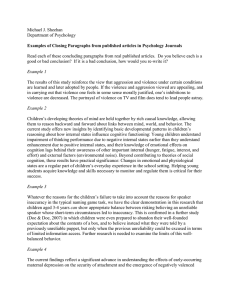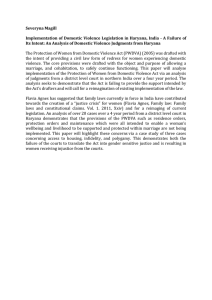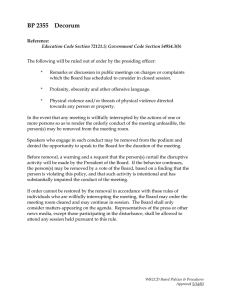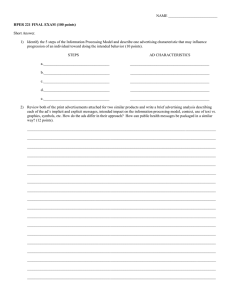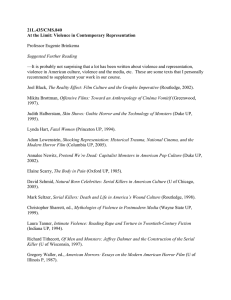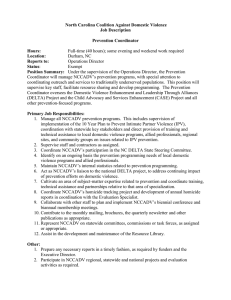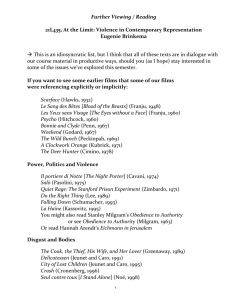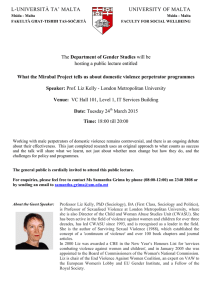Multi-Culturalism and Cross-Culturalism
advertisement
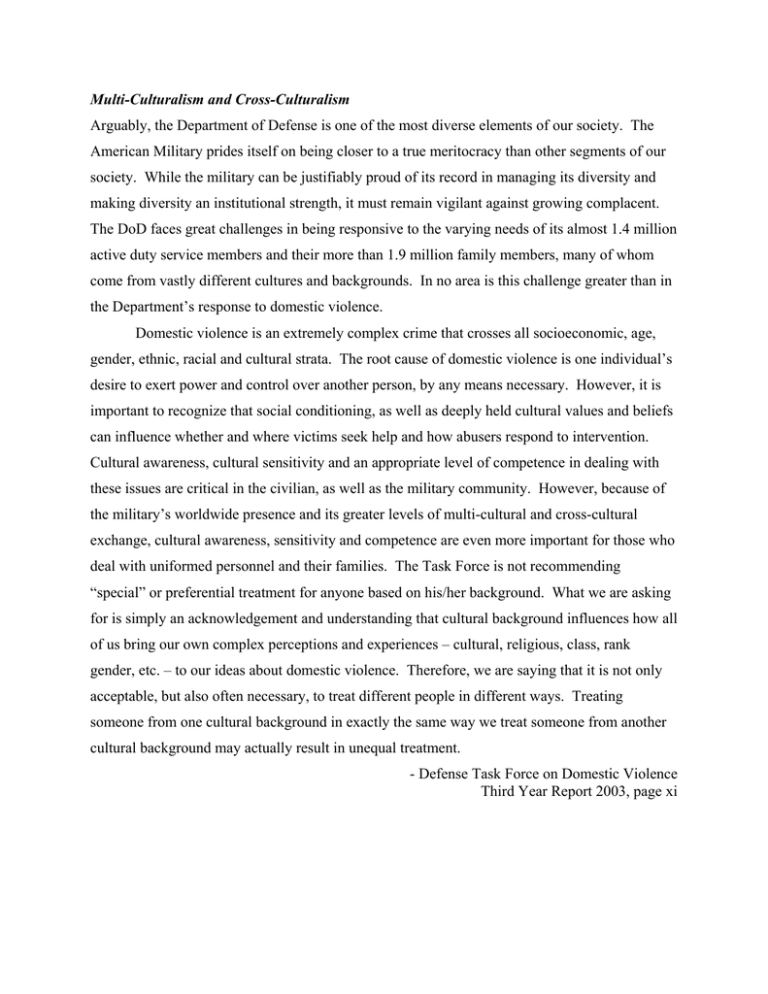
Multi-Culturalism and Cross-Culturalism Arguably, the Department of Defense is one of the most diverse elements of our society. The American Military prides itself on being closer to a true meritocracy than other segments of our society. While the military can be justifiably proud of its record in managing its diversity and making diversity an institutional strength, it must remain vigilant against growing complacent. The DoD faces great challenges in being responsive to the varying needs of its almost 1.4 million active duty service members and their more than 1.9 million family members, many of whom come from vastly different cultures and backgrounds. In no area is this challenge greater than in the Department’s response to domestic violence. Domestic violence is an extremely complex crime that crosses all socioeconomic, age, gender, ethnic, racial and cultural strata. The root cause of domestic violence is one individual’s desire to exert power and control over another person, by any means necessary. However, it is important to recognize that social conditioning, as well as deeply held cultural values and beliefs can influence whether and where victims seek help and how abusers respond to intervention. Cultural awareness, cultural sensitivity and an appropriate level of competence in dealing with these issues are critical in the civilian, as well as the military community. However, because of the military’s worldwide presence and its greater levels of multi-cultural and cross-cultural exchange, cultural awareness, sensitivity and competence are even more important for those who deal with uniformed personnel and their families. The Task Force is not recommending “special” or preferential treatment for anyone based on his/her background. What we are asking for is simply an acknowledgement and understanding that cultural background influences how all of us bring our own complex perceptions and experiences – cultural, religious, class, rank gender, etc. – to our ideas about domestic violence. Therefore, we are saying that it is not only acceptable, but also often necessary, to treat different people in different ways. Treating someone from one cultural background in exactly the same way we treat someone from another cultural background may actually result in unequal treatment. - Defense Task Force on Domestic Violence Third Year Report 2003, page xi

